A legacy of excellence: Celebrating 95 years of research and educational innovation at the NUS Faculty of Arts and Social Sciences
November 26, 2024
IN BRIEF | 10 min read
- From just fewer than 40 students taking its classes in 1929, FASS welcomed about 4,400 undergraduates and more than 1,500 postgraduates in the current academic year.
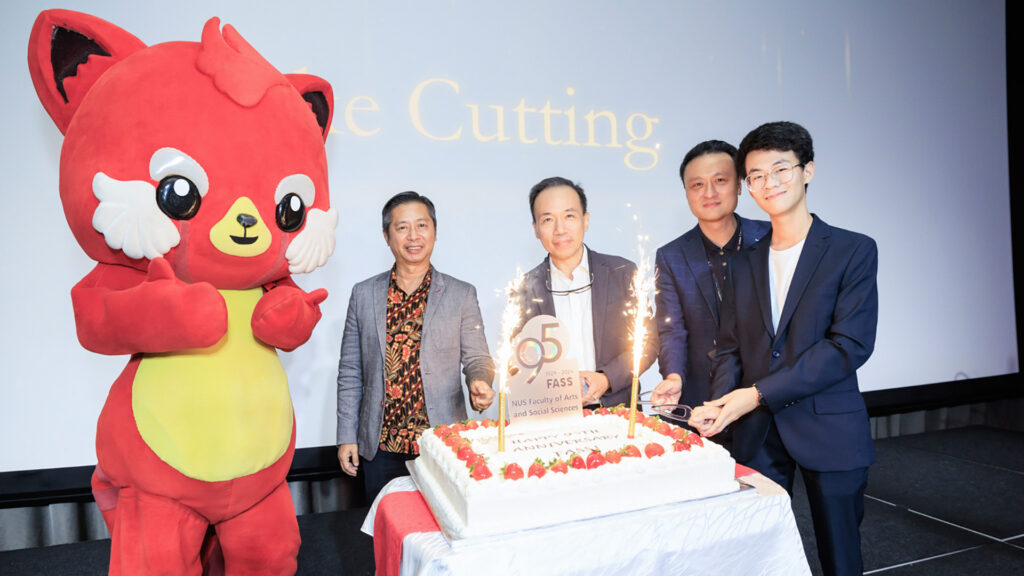
More than 350 distinguished guests comprising university and faculty members, donors, cherished alumni, students and friends came together to celebrate the NUS Faculty of Arts and Social Sciences’ (FASS) legacy of education and research excellence at a gala dinner held at One Farrer Hotel on 22 November 2024.
From humble beginnings to a world-class faculty
FASS boasts a rich and illustrious history that spans close to a century.
The Faculty began by offering diploma courses in the four disciplines of English, History, Geography and Economics in 1929. Over the years, in response to the nation’s growth and local and international needs, other departments such as Social Work (1952), Philosophy (1954), Political Science (1961), Communications and New Media (2005), and many others were formed.
Today, the Faculty is one of the largest faculties at NUS boasting 16 different departments and programmes and academic offerings in the fields of humanities, social sciences, Asian studies, and language studies that cover a rich and diverse array of disciplines ranging from Southeast Asian Studies and Psychology to Theatre Studies, and Sociology and Anthropology.
From just fewer than 40 students taking its classes in 1929, FASS welcomed about 4,400 undergraduates and more than 1,500 postgraduates in the current academic year. The Faculty also has a strong international outlook, offering students diverse opportunities to study abroad and engage with global perspectives through joint degree programmes, exchange programmes, internships and collaborations with top universities worldwide such as King’s College London and the University of North Carolina – Chapel Hill. In the last academic year alone, the Faculty received more than 800 exchange students from 34 countries, a testament to its global appeal and multicultural campus environment.
Reflecting on FASS’ legacy at the dinner, Dean of FASS and FASS alumnus Professor Lionel Wee noted that the Faculty has never wavered in its mission to advance knowledge and learning in the humanities and social sciences. He said, “Over the decades, while the world around us has changed, this mission has remained steadfast – the guiding of generations of students to become thoughtful leaders and engaged citizens who make a difference in Singapore and beyond.”
FASS alumni have gone on to excel on the national and global stages – playing leading roles in shaping global and public policy, trailblazing business initiatives in the private sector, advancing cultural initiatives and driving social change. Eminent alumni include former President of Singapore Mr S R Nathan; Former Under-Secretary-General of the United Nations and social scientist Dr Noeleen Heyzer; influential Asian historian and NUS Emeritus Professor Wang Gungwu, as well as prominent business entrepreneur and Founder of Banyan Tree Holdings, Mr Ho Kwon Ping.
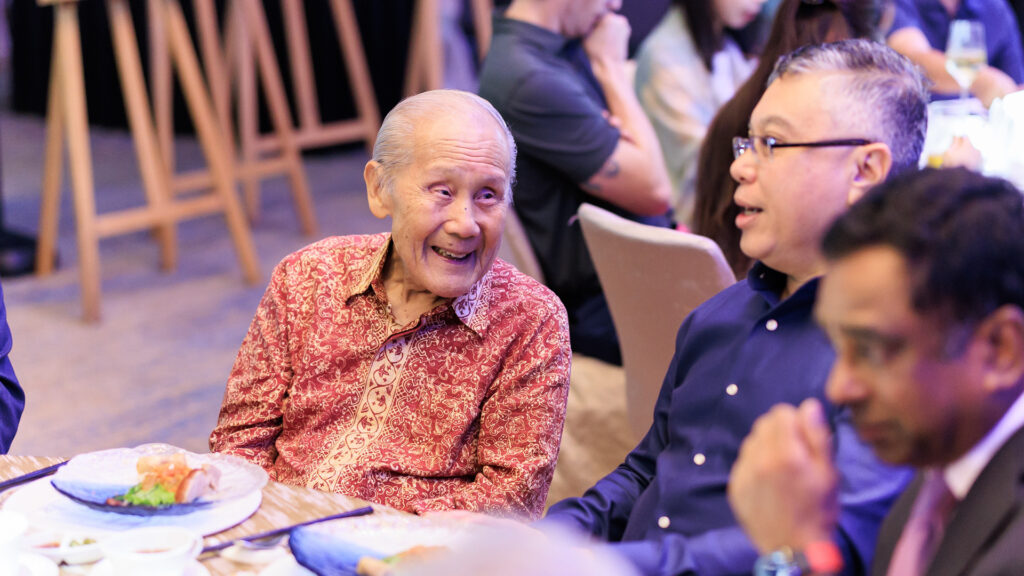
Over the years, the Faculty has continuously spearheaded fresh educational strategies – demonstrating its keen understanding of evolving societal trends. In 2019, it introduced the FASS 2.0 Industry Tracks initiative that provides undergraduates industry-relevant training to complement the FASS education. A year later, the Faculty and the NUS Faculty of Science launched the NUS College of Humanities and Sciences with interdisciplinary education as its focus.
Indeed, initiatives such as CHS, said Prof Wee, demonstrate FASS’ dedication to equip students to meet the demands of an interconnected and rapidly changing world. “This interdisciplinary approach helps prepare them to view challenges from multiple perspectives, positioning them as well-rounded leaders and changemakers.”
Echoing similar sentiments was guest-of-honour, Prof Aaron Thean, NUS Deputy President (Academic Affairs) and Provost, who noted that CHS also offers more opportunities for NUS academics as it encourages groundbreaking interdisciplinary research partnerships between FASS and faculties across NUS. FASS, he stressed, “has been, and will continue to be, a cornerstone of our university and a place where intellectual exploration and a sense of community can be found.”
FASS alumni: Memories of FASS and the value of a FASS education
The gala dinner was an opportunity for alumni to reconnect and recall fond memories of their time at FASS.
Reminiscing about her university days, Ms Nichol Ng, CEO of food and beverage business X-Inc Group and Co-founder of the Food Bank Singapore, shared that her best memories were of studying on the steps of the Forum near the Central Library and climbing the hills to get to class.
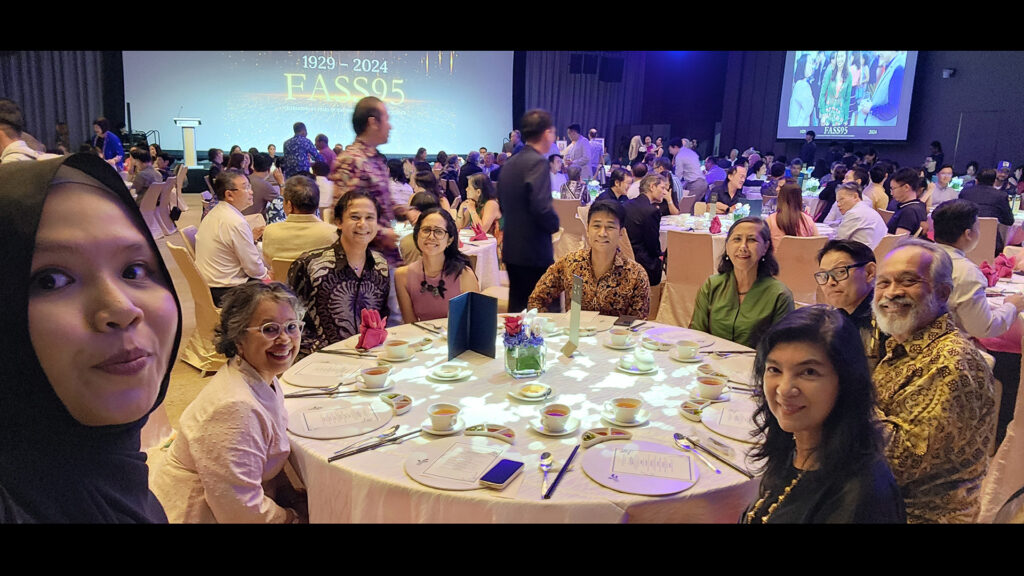
The rigour and diversity of experiences offered by the Faculty proved invaluable in the FASS Economics and Japanese Studies alumna’s career. “The diversity of people whom I have met in FASS also allowed me to work with peers from different backgrounds and passions, establishing the people skills that I have today,” she added.
Another alumna, Ms Nur Diyana shared that the academic rigour and emphasis on critical inquiry during her time at the Department of Malay Studies sharpened her analytical thinking and nurtured a deep curiosity. “This has been instrumental in my graduate studies and continues to influence my work as a research librarian at NUS Libraries, where I draw upon those same skills to navigate complex information and contribute meaningfully to my field.”
Professor Robbie Goh, former FASS Dean and Provost at the Singapore University of Social Sciences observed how far FASS has come, with international university counterparts now lining up to seek potential collaborations with FASS – a far cry from the situation he witnessed as a young FASS academic in the 1990s. FASS, he added, had made a profound impact on his professional and personal lives.
He said, “FASS is my alma mater as well as my intellectual home and where I spent 33 years as an academic. It’s where I met my wife when we were undergraduates together. Without the opportunities and encouragement that FASS gave me, I simply would not have had the resources and wherewithal to become an academic.”
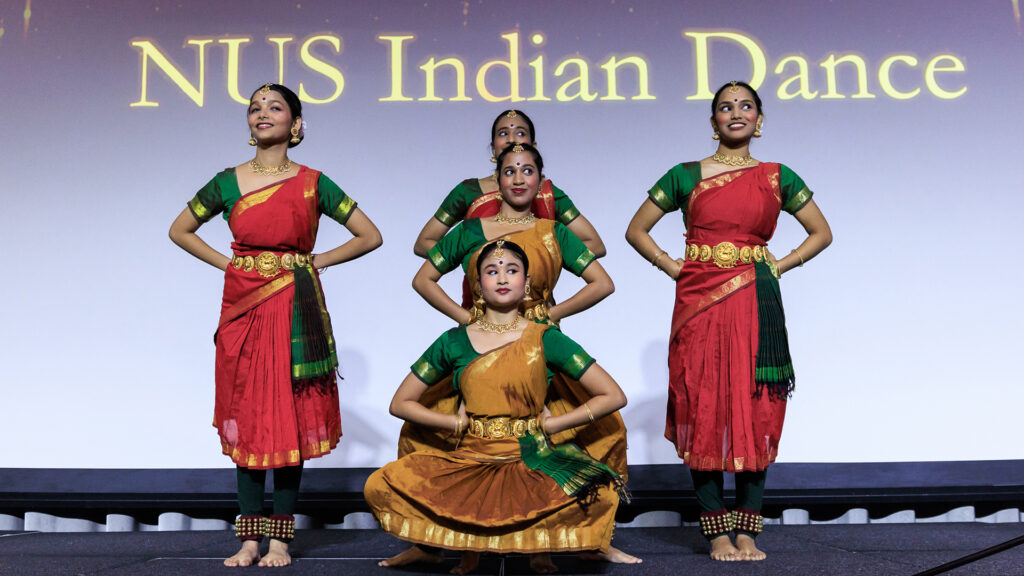
Looking ahead – A FASS that continues to nurture young changemakers, with a strong social ethos
To mark the Faculty’s 95th birthday, FASSCares, an annual community engagement programme that started in 2018, held a fundraising initiative for Club Rainbow – a charity that supports children with chronic illnesses and their families. FASS had chosen to partner with Club Rainbow given a shared commitment to social responsibility and community support. A special outing was also organised for 22 children from Club Rainbow and their families at Jewel Changi Airport’s Canopy Park in September, where FASS staff, students and alumni spent the afternoon playing with the children and their families on the slides and bouncing nets, and bonded over lunch.
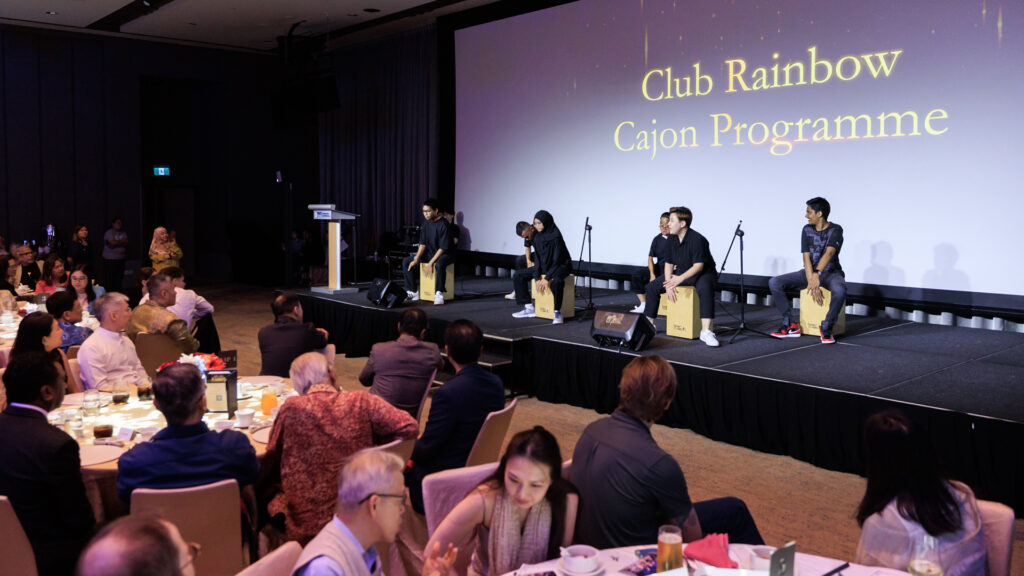
Close to S$66,000 was raised at this fundraising initiative through donations from staff, students and alumni and ticket sales for the gala dinner.
Thanking FASS for its efforts at the dinner, Mr Teo Siang Loong, Executive Director of Club Rainbow said, “We are currently serving close to 5,000 individuals in Club Rainbow including 1,200 children with chronic illnesses, many of whom have special needs and disabilities. In this year of an uncertain economic climate and inflationary environment, our donations have decreased overall. All the support garnered will have a direct impact on the children in need and on the vulnerable families.”
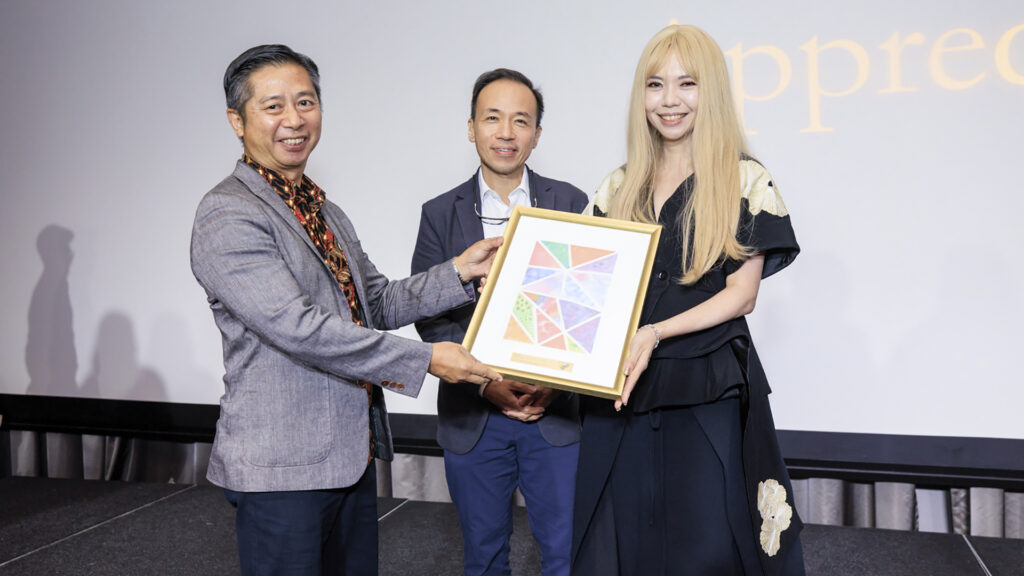
FASS also launched the new 95th FASS Distinguished Speaker Series with the aim to inspire FASS students towards excellence through meaningful engagements with alumni about their achievements. The series’ inaugural speaker, Ms Denise Phua, Member of Parliament for Jalan Besar GRC and Mayor for Central Singapore District, engaged students in September on the leadership lessons she learnt from her careers in the private, public and social sectors.
As FASS enters its centennial, Prof Wee stressed that the Faculty will focus on building on the work of past FASS cohorts to advance an interdisciplinary education that has both breadth and depth. It will continue to nurture adaptable, empathetic and innovative problem-solvers with a strong social ethos.
The Faculty, he added, is also committed to enhancing impact through research that spans disciplines and connects with real-world issues, “from urban studies to public policy, from heritage conservation to digital humanities.”
When asked for his views on the role FASS will take in shaping contemporary society, Dr Maliki Osman, an alumnus and Minister in the Prime Minister’s Office and Second Minister for Education and Foreign Affairs, summed it up succinctly. “In today's world where issues are becoming increasingly complex and require a multi-disciplinary approach to solve, the humanities and social sciences continue to play an important role…I am confident that FASS will continue to scale new heights and nurture tomorrow’s citizens – people who are creative, collaborative and compassionate.”
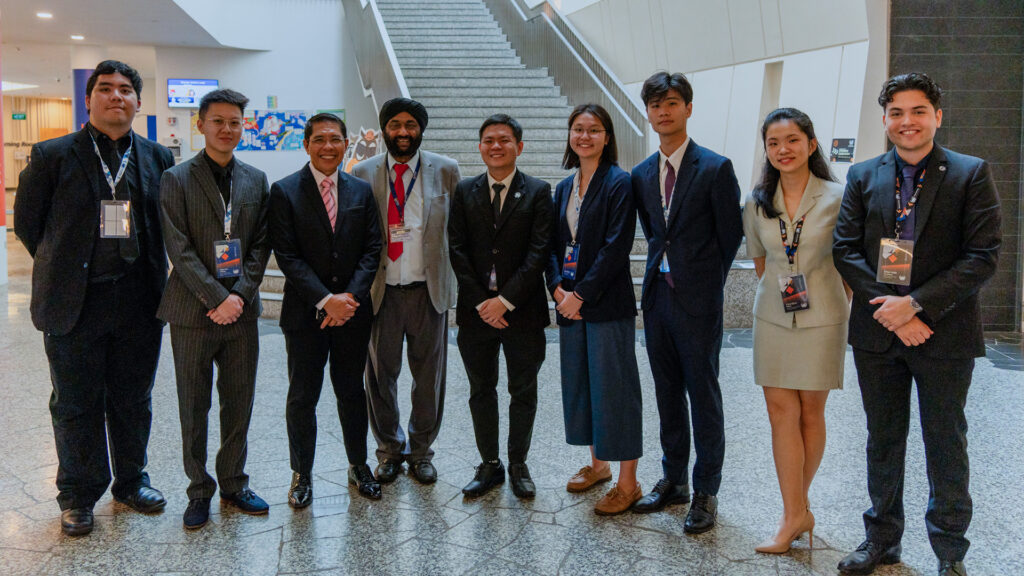
This story first appeared on NUSnews on 26 November 2024.

